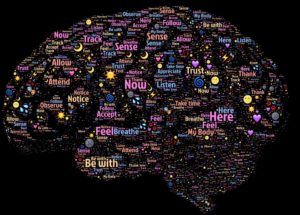
Meditation
Clients often ask me, “What is the effect of meditation practice?” I’ve written about effects of meditation here and here.
Today the New York Times had an interesting article called Of Mice and Mindfulness, which answers that question a little bit. They report a study conducted at the University of Oregon by Cristopher Niell and others.
They cite past studies that found that people who meditate tended to have more white matter around the anterior cingulate cortex, which is a part of the brain that regulates emotion. Meditation also increases the theta wave activity of the brain. Some researchers have wondered if the increased theta wave activity increased the white matter.
Theta waves run at a frequency of 8 Hz, and researchers at the University of Oregon figured out that they could test the effects of this frequency with a very complicated research design. Previously scientists there had developed a breed of mice that had genes that were responsive to light. By beaming light into the mice brains at the same frequency as human theta waves they found that this turned on the neurons in the anterior cingulate cortexes. The researchers also beamed light at a frequency of 1Hz and 40 Hz as a control.
Each mouse got 30 minutes of light therapy for 20 days, which was an attempt to mimic the intensity of human meditation. After, the mice that were exposed to the 8 Hz theta wave frequencies of light were mellower; they hung out in the lighted area of a special cage, while their non-meditating counterparts hid in the shadows! (The 1Hz group also were mellower, which does call into question the specificity of the theta frequency needed to create mellowness in mice.)
So what can we learn about this study of the murine mind? (Yes, who knew that the word murine refers to mice and other related rodents.) The research suggests that there is something about lower frequency brain stimulation that leads to lowered anxiety and increased bravery. I think it’s probably a stretch to assume that this research directly supports the same concept in humans, since nobody is going to replicate this research with people. Nevertheless, it adds to the idea of the mechanism of meditation, which may actually change your brain when practiced diligently for a month.
Now I’m going to take a writing break and meditate…
P.S. Please see my article How to Meditate if you want to start meditating.

